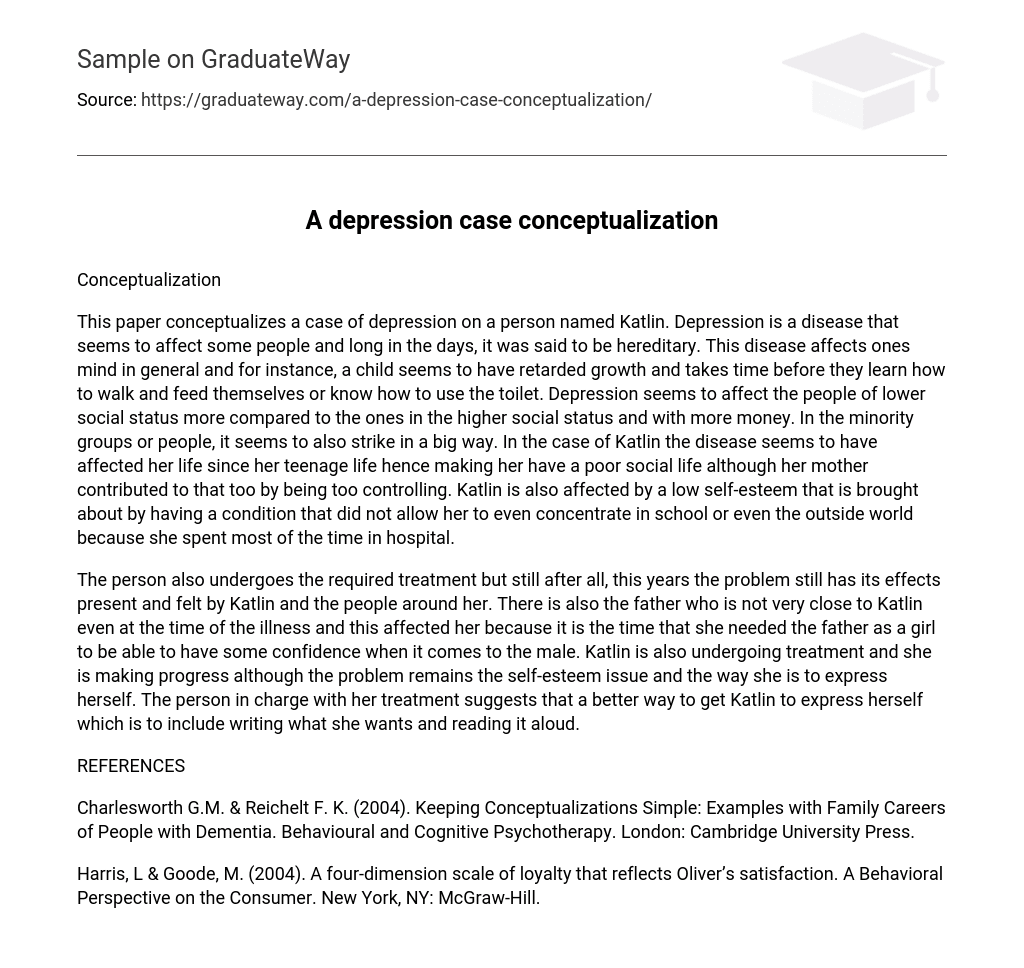Conceptualization
This paper conceptualizes a case of depression on a person named Katlin. Depression is a disease that seems to affect some people and long in the days, it was said to be hereditary. This disease affects ones mind in general and for instance, a child seems to have retarded growth and takes time before they learn how to walk and feed themselves or know how to use the toilet. Depression seems to affect the people of lower social status more compared to the ones in the higher social status and with more money. In the minority groups or people, it seems to also strike in a big way. In the case of Katlin the disease seems to have affected her life since her teenage life hence making her have a poor social life although her mother contributed to that too by being too controlling. Katlin is also affected by a low self-esteem that is brought about by having a condition that did not allow her to even concentrate in school or even the outside world because she spent most of the time in hospital.
The person also undergoes the required treatment but still after all, this years the problem still has its effects present and felt by Katlin and the people around her. There is also the father who is not very close to Katlin even at the time of the illness and this affected her because it is the time that she needed the father as a girl to be able to have some confidence when it comes to the male. Katlin is also undergoing treatment and she is making progress although the problem remains the self-esteem issue and the way she is to express herself. The person in charge with her treatment suggests that a better way to get Katlin to express herself which is to include writing what she wants and reading it aloud.
REFERENCES
Charlesworth G.M. & Reichelt F. K. (2004). Keeping Conceptualizations Simple: Examples with Family Careers of People with Dementia. Behavioural and Cognitive Psychotherapy. London: Cambridge University Press.
Harris, L & Goode, M. (2004). A four-dimension scale of loyalty that reflects Oliver’s satisfaction. A Behavioral Perspective on the Consumer. New York, NY: McGraw-Hill.





